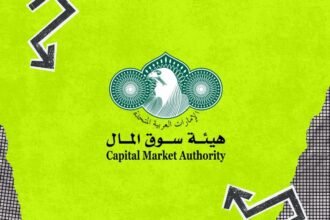Every great founder story starts somewhere, and Halima’s began with… scones. Seriously. After moving back to Pakistan, she noticed a gap in the market for her favorite baked good, so she started a small, home-based business on weekends called “Rolling Scones”. It was a sweet gig, making enough money to explore other opportunities. This little venture highlights a key founder trait: the ability to spot a gap and just go for it.
But Halima was destined for a much bigger challenge. She co-founded Oraan, a digital financial services platform aimed at empowering women.
Her flagship product? Digitizing “committees,” a traditional savings method where a group of people pool money together. This isn’t just a niche idea; a staggering 41% of Pakistan’s population uses committees, a figure backed by research from institutions like the Bill and Melinda Gates Foundation.
Halima’s journey illustrates the concept of founder-market fit, something she believes is crucial, especially for first-time founders in emerging markets. You have to genuinely relate to the problem you’re solving. If you don’t, going that extra mile when things get tough feels almost impossible. For her, the problem was clear: women in Pakistan lacked trust in traditional banks and needed financial services that fit into their lives, not the other way around.
The Entrepreneur’s Mindset -A Healthy Dose of Delusion
So, who should even be an entrepreneur? Halima disagrees with the idea that just anyone can do it. She believes you need a special skill set, starting with a crucial ingredient: delusion. You have to be a “delusional optimist” to look at a massive problem and believe you are the one who can solve it.
This isn’t about being out of touch with reality. It’s about having an unshakeable belief that you can change things. The entrepreneurial journey is incredibly tough, a constant grind of eating, sleeping, and breathing your business. That delusion is what fuels your persistence when the going gets tough, which, spoiler alert, is pretty much all the time.
Find Your ‘Why’ and Your Delusion. Before you jump in, do some serious self-reflection.
- Founder-Market Fit – Do you deeply understand and care about the problem you’re solving?
- Skill Set – What are your strengths and weaknesses? Are you the right person for this specific challenge?
- Problem Size – How big is the problem? For a venture-backed business, it needs to be massive to justify the risk.
Your personal values are the foundation of your business; they’ll help you attract the right people and build a strong company culture.
The Fundraising Gauntlet – More Than Just Money
Fundraising is a beast. Kalsoom Lakhani, an investor, puts it bluntly: it’s a journey where you have to “lose all respect for yourself”. You’ll face constant rejection and moments where you doubt your own abilities.
Halima stresses the importance of knowing why you’re raising capital and being authentic in the process. More money isn’t always the answer; too much capital can create its own set of problems. But the most critical rule of fundraising? No money is better than bad money. Finding investors who are aligned with your long-term vision is paramount.
Choose Your Investors Wisely.
- Value Alignment: Don’t just take the first check you’re offered. Ensure your investors share your long-term goals and values.
- Do Your Due Diligence (DD): This is a two-way street. Just as investors vet you, you need to vet them. Talk to other founders in their portfolio. Ask the tough questions about their behavior and value-add. In a newer ecosystem like Pakistan’s, founder DD on investors is a relatively new but essential concept.
Building in a Tough Market – The “Pakistan Tax”
Entrepreneurship is hard everywhere. In a market like Pakistan, it’s like playing on expert mode. Founders face what can be called a “Pakistan tax”—a unique set of challenges from infrastructure issues to regulatory hurdles. Imagine trying to build a business while dealing with internet blockages, an onerous tax regime, and political instability that can derail progress overnight.
However, Halima offers a powerful counter-perspective. While macro challenges are real, she believes it’s the founder’s job to not just build a business but to also push the needle forward for the entire ecosystem. If founders don’t care enough to navigate these hurdles and advocate for change, the market will never evolve. Someone has to start, and that’s the choice she and her peers have made.
Embrace the Grind and Be a Changemaker.
- Acceptance – If you choose to build in a challenging market, you have to accept that these obstacles are part of the job.
- Advocacy – Don’t just complain. Actively engage with regulators and stakeholders to advocate for a better environment. Your efforts can make it easier for the next generation of founders.
The Female Founder Experience – Breaking Biases
Being a female founder comes with its own set of global challenges, but in Pakistan, they can be amplified. Halima has faced numerous obstacles, from partners and investors not taking her seriously to the pervasive belief that her startup is just a “passion project”.
One of the biggest struggles she initially faced was team building. In a culture where women in leadership aren’t always taken seriously, she encountered comments questioning her commitment simply because she was a woman. This bias extends to major life events. After becoming a new mom, the market chatter was that her priorities must have shifted. This societal pressure forces many ambitious women to feel they have to prove their dedication hasn’t diminished, a burden their male counterparts rarely face. Halima’s response? A renewed drive to prove everyone wrong.
When interviewing for jobs at large organizations before her startup, one of the first questions she was asked by HR was, “Are you married?”. The question stemmed from a historical pattern of companies seeing marriage and pregnancy as precursors to women leaving the workforce, a failure not of the women, but of inflexible work environments.
Build Your Tribe and Be Vocal.
- Find Your Support System: The entrepreneurial journey is not easy for anyone. Find mentors, peers, and a team who believe in you and your vision. This “tribe” is crucial for navigating the inevitable tough times.
- Speak Up: Don’t be silent about the problems you face. Being vocal helps create awareness and drives the conversation forward, paving the way for a more equitable ecosystem.
- Create Inclusive Environments: As a founder, you have the power to design a better workplace. Offer flexibility and resources that allow everyone, especially women who often bear disproportionate household responsibilities, to thrive. Competence should always be the hiring criteria, not gender, but creating an environment where competent women can succeed is key.
The Long Game – Patience, People, and Purpose
Building a company in a market like Pakistan isn’t a sprint; it’s a marathon.
Halima emphasizes that entrepreneurs need to come in with a long-term mindset, understanding that it’s not a two or three-year journey.
Manage Your Energy and Build for the Long Haul.
- Pace Yourself: Burnout is real, especially when your expectations don’t match reality. Managing your energy is just as important as managing your finances.
- Invest in People: Finding the right people to join you on this long journey is perhaps the most important thing you’ll do. This includes not just your co-founders but your entire leadership team.
- Stay True to Your Purpose: The risk of building in an emerging market is high, but so is the reward. For Halima, the motivation isn’t just commercial success; it’s about solving real, meaningful problems for a massive population. When a woman gains financial agency, she’s not just empowering herself—she’s empowering her family and the next generation. That’s a “why” worth fighting for.




